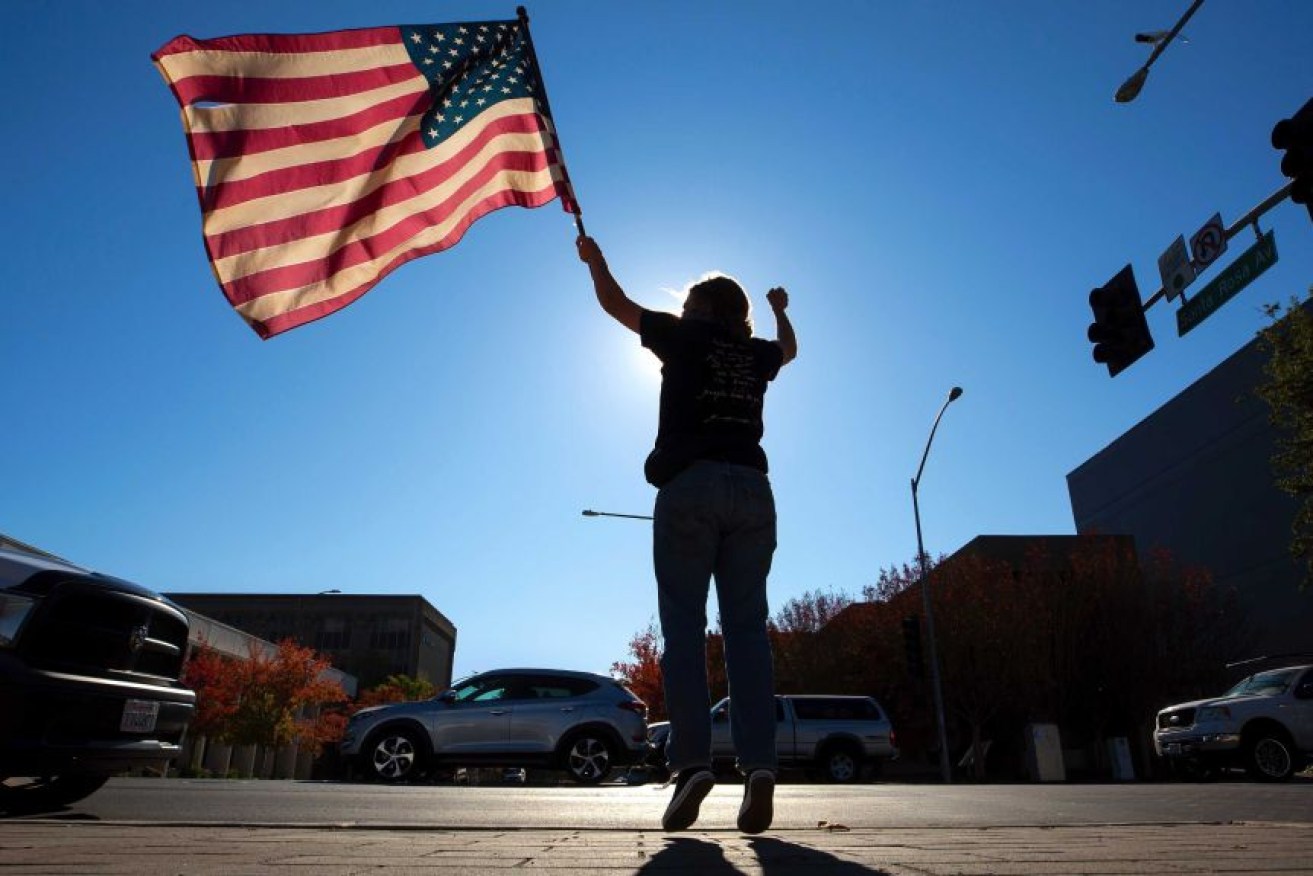Has Donald Trump’s presidency finally killed off the myth of America?
The mythical “shining city on the hill” image of America has always stretched credibility, but Donald Trump’s divisive presidency might have finally laid the myth bare, writes Stan Grant

Some political pundits are blinded by their 'weird nostalgia' for a country that, to so many Americans, did not and does not exist. (Photo: AP: Alvin A.H. Jornada)
I have missed America.
I have missed that surge of anticipation and excitement getting off a long plane ride and walking through the terminal of LAX or JFK airport.
I have missed waiting in the immigration queue and hearing foreign languages all around me, the people of the world drawn to this place of dreams.
I have missed the immigration officer telling me to “have a nice day”; that familiar, comforting sound of the American accent, the backdrop of my childhood in front of a TV screen.
It has been a couple of years since I last visited the US and, with COVID restrictions, it may be a couple more until I return. For now America lives in my memory: hours spent wandering the Strand bookstore in New York; sampling guitars in the best guitar shops anywhere in the world; people watching at Venice Beach; dinner at Stamatis Greek restaurant in Queens.
That’s what America is right now: a memory. Perhaps that’s what it will remain. The mythical America is fading — if it ever even existed.
There has always been another America: a counter to the Reagan “shining city on a hill”. It is the America of slavery, genocide, poverty, segregation and lynching: it is an America that has never atoned for its original sin.
America has always been in a battle between its demons and the better angels of its nature.
Mythical America has always had its prophets: from George Washington to Abraham Lincoln or John F Kennedy.
Woodrow Wilson built the American century after World War I with a belief that America was a nation chosen to lead others to liberty and democracy.
American Eden was built on the belief in progress — go west, young man — and manifest destiny.
As historian Greg Grandin wrote: “No myth in American history has been more powerful, more invoked by more presidents, than that of pioneers advancing across an endless meridian.”
Barack Obama bought into the same idea that “a skinny kid with a funny name” could become the first black president of the United States. There was no black America or white America, he said, as if casting a vote could absolve the nation of centuries of brutality and oppression.
Joe Biden apparently still believes it, endlessly repeating that there are no “red states or blue states just the United States”. Really? After the events of the past two weeks, he still believes that?

Trump supporters try to break through a police barrier at the Capitol in Washington earlier this month. (Photo: AP: Julio Cortez)
Greg Grandin’s book The End of the Myth reveals how, after World War II, “the frontier became a central metaphor to capture a vision of a new kind of world order”.
Yet America has also had its true prophets: those who see the country for what it is and challenge it to live up to its creed.
W.E.B. Du Bois, the African-American scholar, said that America’s true faith was its “whiteness” and that belief in whiteness assumed “ownership of the earth”.
Martin Luther King Junior gave his life to hold America to account; his civil rights campaign set against the backdrop of America’s war in Vietnam, “the bombs in Vietnam explode at home”, he said.
And James Baldwin wrote that Americans were “unable to look into their own mirror”. White America, he said, was “in the grip of a weird nostalgia, dreaming of a vanished state of security and order”.
Little wonder Donald Trump’s brand of white nationalism took him to the White House.
These American prophets told us the truth of the country — a truth lurking just beneath the surface and now so devastatingly revealed.
Yet old myths die hard. Even now with Trump impeached for a second time, political pundits have filled the airwaves, rushing to revive the nation’s faded glory, as if the end of Trump will renew the promise of democracy.
They cannot see what is before their eyes: it is America that is broken. These pundits are still blinded by their “weird nostalgia” for a country that to so many Americans, did not and does not exist.
As Grandin writes, this was what King warned America against, a “constant fleeing forward” that allowed America to avoid “a true reckoning with its social problems, such as economic inequality, racism, crime and punishment and violence”.
Grandin asks if Trumpism is a “rupture, a wholly un-American movement” or “the realisation of a deep-rooted American form of extremism”.
The answer is that Donald Trump is an American President: a wholly American creation.
Trump is absolutely a product of America’s myth of progress and endless expansion: a 21st-century version of the robber barons of America’s 19th-century Gilded Age.
The difference now is that America is no longer on the rise. American horizons have narrowed and its global power and prestige is damaged. As Greg Grandin says, expansion can “no longer reconcile the contradictions” or “redirect the anger”.
America’s anger has turned inward, as Grandin says, it is “all-consuming and self-devouring”.
All nations are an invention: they are sustained by their own mythology. It has been so easy to believe in a mythical America that oversaw the post-war economic boom, gave us the computer age and put people on the moon.
Mythical America has drawn the world’s poor, huddled masses, yearning to breathe free.
If I close my eyes, that is the America I can still just about believe in. It is the America I miss — the America that lives in my memory or my fantasy.
I can visit that America on holiday while too many Americans exist in the nation off the tourist map: the urban wastelands, small towns, overgrown weeds, shuttered factories and rusted out cars.
Grandin says America could believe it was exceptional, that it had escaped history; now it finds itself “trapped by history … prisoners of the past”.
With Donald Trump, he says, “America finds itself at the end of its myth”.
Stan Grant is ABC’s International Affairs Analyst












